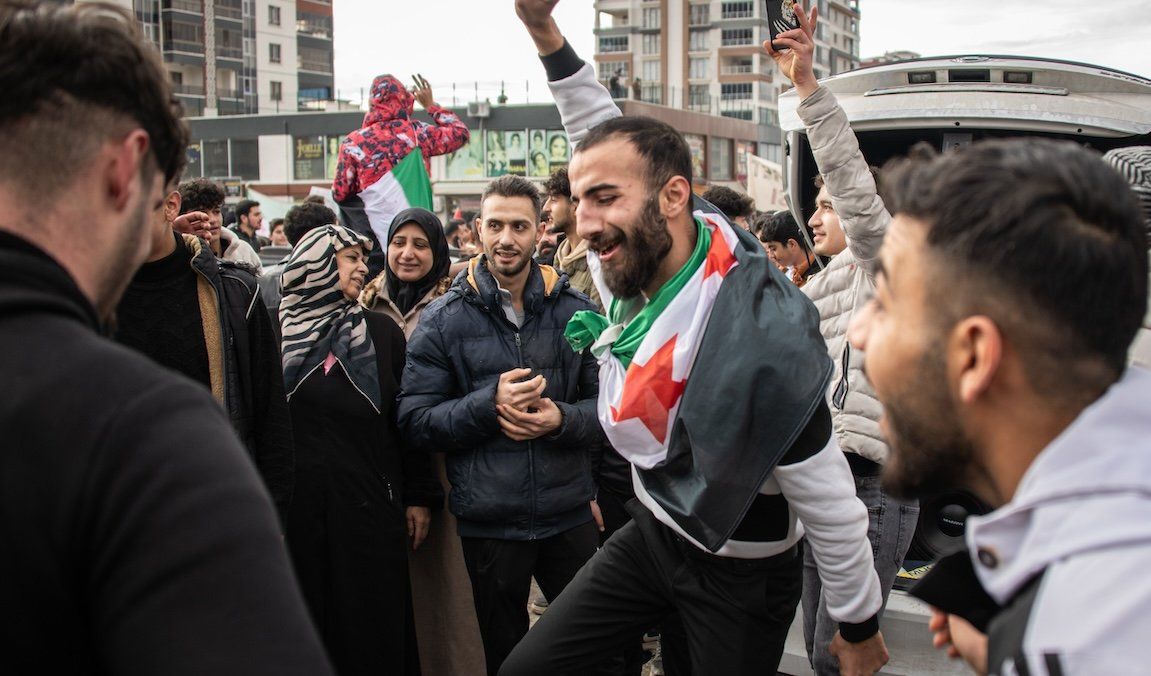Syrian refugees in Ankara, Turkey, celebrate the fall of Syrian President Bashar al-Assad on Dec. 8, 2024.
In Turkey, which hosts approximately 3.2 million Syrian refugees, celebrations erupted following Assad’s ouster, with many people talking aboutreturning home. Syrian refugees in Britain and Germany also held jubilant public celebrations, expressingexcitement about going back.
Regime change in Damascus could also pave the way for the repatriation of Syrian refugees from some parts of Europe. The Netherlands was already considering policiesto send asylum-seekers back, while other EU countrieswere discussing voluntary repatriation before Assad’s fall. Countries could close the door to new arrivals on the basis that Syrian migrants no longer face persecution at home. Closer to home,Jordan is also discussing the possible return of Syrian refugees.
But the feasibility of large-scale repatriation hinges on Syria’s economic stability, the shape of its future government, and reconstruction efforts. A Jihadist regime might not be appealing to refugees seeking to return. And on X, the UNHCR posted “Any refugee return must be voluntary, dignified and safe. UNHCR has been working with all stakeholders to address what refugees identify as obstacles to their return to end their displacement.”
Could the return of refugees dampen support for populist anti-immigration parties in the West? Without a crisis on their doorsteps, politicians like Giorgia Meloni and Geert Wilders would have one less drum to beat – at least when it comes to refugees from Syria.